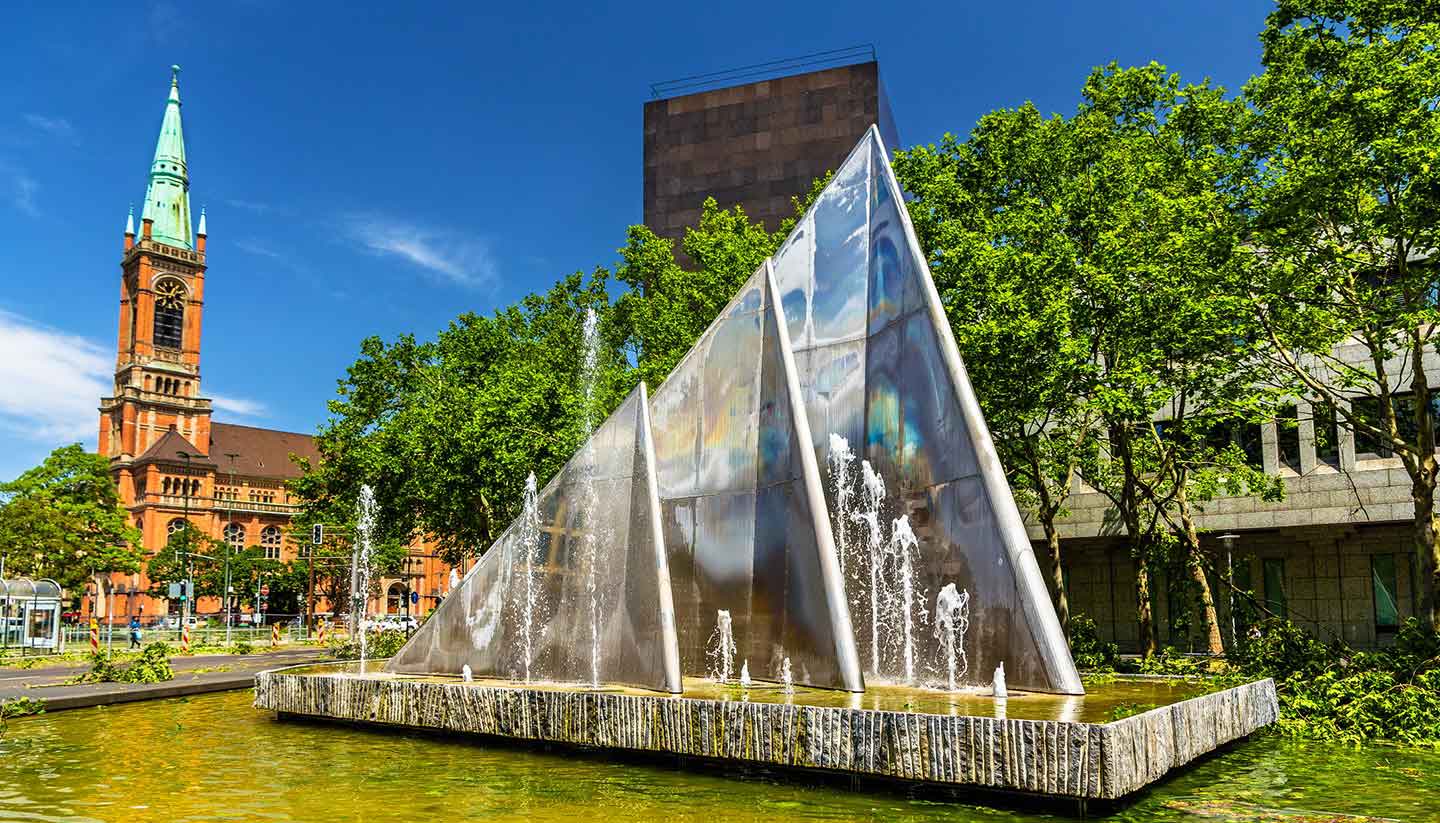Düsseldorf History
It might be an industrial hub today, but Dusseldorf started life as a tiny dorf (village) on the banks of the River Düssel in the 8th century AD. Part of the marshy Rhine region, it was largely ignored by the Romans, with the result that the city didn’t really emerge as a settlement much before the 10th century. Indeed, its first real mention in the record books didn’t come until 1135.
Incorporated into the Holy Roman Empire under Emperor Friedrich Barbarossa, Düsseldorf came under the rule of the Counts of Berg in 1186. A century later, in 1288, it was finally granted official status and given permission to become a town by Count Adolf VIII of Berg. In 1380, it became the seat of the Duchy of Berg and swiftly grew fat on trade – much of it fuelled by the River Rhine.
The city continued to grow under the Counts of Palatinate-Neuburg who took Düsseldorf in 1609 after a bloody struggle. During this period, in particular during the reign of Johann Wilhelm II, the city established itself as a hub for culture and trade as the ruling dynasty used their wealth to encourage the arts.
But Düsseldorf’s luck ran out when the Napoleonic Wars brought disaster to the city, which was ravaged by the French as they passed through. After Napoleon’s defeat at Waterloo, Düsseldorf was handed over to Prussia, which established the parliament of its Rhine Province in the city.
The resulting boom and speedy industrialisation saw Düsseldorf become one of Prussia’s richest cities, with oil, mining and manufacturing among the main businesses.
Growth slowed during WWI but soon fired up again, helped along by Hitler’s rearmament programme of the 1930s.
But the war that followed had disastrous consequences for Düsseldorf, with the city and its heavy industry almost flattened during the Allied bombing campaign. Conquered by the Americans in 1945, the years since WWII have seen Düsseldorf rebuild, regroup and re-establish economic dominance once more.
Did you know?
• The Dusseldorf tradition of cartwheeling is said to have originated as an expression of celebration when the Germans won the Battle of Worringen in 1280.
• Düsseldorf is a carnival hot spot. One million visitors come for the Shrove Monday procession every year.
• After WWII, the Old Town was rebuilt on its original foundation walls, so that it maintains its historic organisation.


